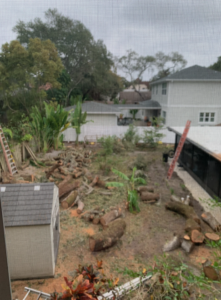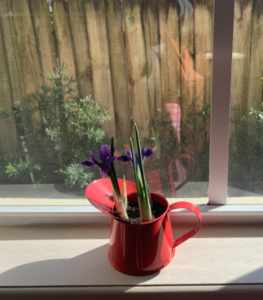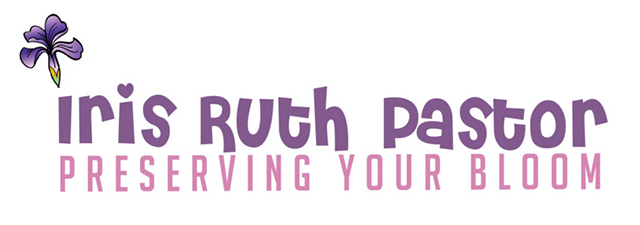I was fuming. My heart was racing and my temples pounding. Less than 20 feet away from my kitchen window, a crew of burly, barrel-chested men were climbing trees, lassoing branches and wielding chain saws to take down four very old and beautiful shade trees in my neighbor’s yard.
I do what I always do when confronted with an adversarial situation: implore my husband to do something. With little prodding – this time – he went next door to investigate.
The head of the gang said simply: We’ve got permits. The trees are diseased. They are coming down.
For seven days, my husband and I watched the dismantling of those stately, beautiful live oaks. One branch after another hit the ground with a sickening thud.

Hours later, the logs were piled up on a flatbed truck and hauled off to who-knows-where.
My neighbor’s yard is now barren.
I was prepared to hate the scene of carnage:
The morning sun was now hotter and brighter in my kitchen and family room
The temperature on our second floor was measurably warmer
The view of a myriad of branches and leaves was now an unobstructed view of the sky and the rooftops of nearby houses
Our home suddenly was more urban than an urban oasis
Challenging Faulty Assumptions
I decided to challenge the assumption that I’d hate the removal of the trees. Suddenly……
The trees on adjoining properties are more prominent and appreciated
Additional sunshine allows me to experiment with different types of bushes and trees in my own yard
Strong beams of sunshine beat down on my window sill – allowing my Iris bulbs to blossom

One false assumption conquered. The next one is a little more nuanced and complicated.
As events surrounding the insurrection and the new presidency become more freighted with emotion, I grapple with how to deal with friends and family that have opposing views.
Over the last months, I’ve heard many wise men and women voice the following: If we are to heal, we must listen to those who have opposing views.
“Oh,” I’d say to myself, “Of course, of course, listening is of the utmost of importance and leads to understanding and finding common ground.”
Sounds reasonable.
Sounds right.
Sounds like a plan.
But, actually, I have been doing just the opposite: shutting the dialogue down before it has a chance to blossom and grow.
I have a friend who I have been talking with regularly about her move from one apartment complex to another. We chat about how she is dealing with a different footprint, what items she is taking, donating and/or selling. When one of our many conversations veered to the current insurrection on January 6, we had very different points of view on the merits of the outgoing president. I immediately shut down the dialogue with the following statement: Let’s agree to disagree and let’s keep talk of politics off the table.
Problem solved.
Or was it?
Every week, my husband and I participate in a zoom talk with family from Michigan, California, Ohio, South Carolina, Illinois, and Israel. One relative announced she was supporting someone the rest of us abhorred and for that reason many of her close friends and family were no longer speaking to her. Instead of drawing her out and giving her an opportunity to cite her reasons, we quickly said, “Let’s keep politics out of the zoom call.”
She has not participated in the zoom call since that time.
Another faulty assumption challenged. Stifling dialogue does not lead to understanding and peace. To effectively deal with our differences, we need to listen – not to the pundits, politicians and the plunderers – but to those people whom are tied by blood or friendship to us. And, they in turn, need to listen to us.
Like the absence of those beloved old oaks, let’s find other ways to fill the gaps and make the barren landscape verdant again. The oaks can’t be resurrected, but our relationships can.
Keep Preserving Your Bloom,
Iris Ruth Pastor
